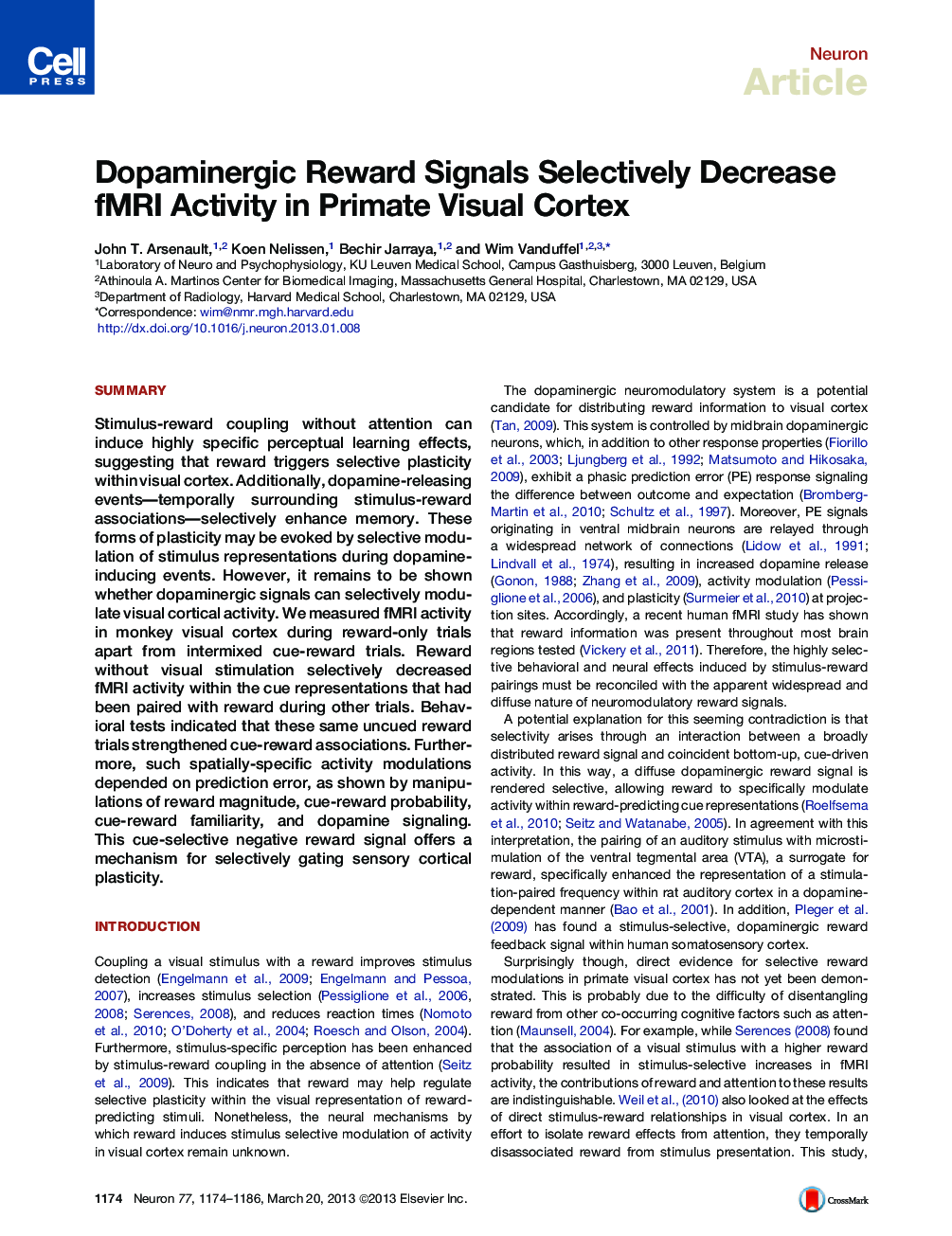| Article ID | Journal | Published Year | Pages | File Type |
|---|---|---|---|---|
| 4321543 | Neuron | 2013 | 13 Pages |
SummaryStimulus-reward coupling without attention can induce highly specific perceptual learning effects, suggesting that reward triggers selective plasticity within visual cortex. Additionally, dopamine-releasing events—temporally surrounding stimulus-reward associations—selectively enhance memory. These forms of plasticity may be evoked by selective modulation of stimulus representations during dopamine-inducing events. However, it remains to be shown whether dopaminergic signals can selectively modulate visual cortical activity. We measured fMRI activity in monkey visual cortex during reward-only trials apart from intermixed cue-reward trials. Reward without visual stimulation selectively decreased fMRI activity within the cue representations that had been paired with reward during other trials. Behavioral tests indicated that these same uncued reward trials strengthened cue-reward associations. Furthermore, such spatially-specific activity modulations depended on prediction error, as shown by manipulations of reward magnitude, cue-reward probability, cue-reward familiarity, and dopamine signaling. This cue-selective negative reward signal offers a mechanism for selectively gating sensory cortical plasticity.
► Reward selectively reduce activity in visual cortex without visual stimulation ► Reward modulations are selective for the reward-paired cue representation ► The strength of reward modulation depends on prediction error and dopamine signaling ► Reward temporally separated from cue-reward associations strengthen cue preference
